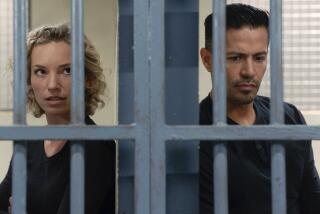U.S. Must Convince Noriega He’s No Longer Acceptable
- Share via
Ten years ago next month, the United States and Panama signed the Panama Canal treaties. For all Panamanians it was a moment of excitement and hope. We saw the treaties ushering in a new era in relations between our countries. We expected that, with the future of the canal settled, Panamanians could look forward to a restoration of democracy in their own country. In his talks with U.S. Senate leaders at the time, Gen. Omar Torrijos promised that his troops would return to the barracks and that civilian rule would be restored through free elections. That process, begun the day the treaties went into effect, was moving forward until Torrijos’ death in a plane crash in 1981.
Whether Gen. Manuel Antonio Noriega was responsible for Torrijos’ death--as Noriega’s own chief of staff, Col. Roberto Diaz Herrera, has charged--must await the findings of an impartial investigation. What is unquestioned is that Noriega killed Torrijos’ promise--and the hopes of the Panamanian people.
Once he took power in 1983, Noriega followed a course precisely opposite the one to which Torrijos was committed. He increased rather than decreased the control of the military over all elements of government, and established a puppet presidency. He imposed military control over immigration, customs, ports, airports and the merchant marine. He controls three newspapers, two television stations and more than 20 radio stations. He has corrupted the military leadership to a point that it operates like a crime syndicate.He has been accused of participating in profits from drug trafficking, contraband, illegal arms sales and money laundering. He has five opulent mansions in Panama, a half-dozen aircraft--including a transcontinental jet--at his beck and call, a posh apartment in Paris and a villa in the French Alps. All on a salary of $60,000 a year.
When Noriega’s long-suspected crimes were finally exposed by his own chief of staff, the people said “enough.” A loose amalgamation of opposition groups took shape. They included civic clubs, students, labor unions, the Roman Catholic Church, professional groups, businessmen--more than 100 organizations in all. They have been waving white handkerchiefs, honking car horns, beating on pots and pans and marching peacefully.
Noriega’s answer has been brutal force. People were arrested for the “crime” of waving their handkerchiefs. Cars were confiscated if their drivers honked their horns near a policeman. Banks and businesses were invaded by government thugs, property was destroyed, young women were molested. Hundreds were jailed.
Yet the Panamanian people refused to be cowed. A general strike this week shut down 90% of the businesses and transport in all of Panama’s major cities. The dictator’s response has been to close all opposition newspapers and subject all radio and television stations to government censorship. Arrest warrants have been issued for many opposition leaders--including all directors of the principal non-government newspaper.
The U.S. government has supported the fight for freedom in Panama by cutting off military and economic aid. Noriega’s response was to stir up anti-American sentiments. “Go home Yankee” signs appeared on walls and posters. A government-organized mob surrounded the U.S. Embassy and defaced it with paint and rocks. The only sources of power in the United States that Noriega respects are the military and the CIA, with which he has done business for years. Only when these organizations tell him that he is beyond the pale will he take the U.S. position seriously.
I am reminded of the events in Nicaragua in the late 1970s. The U.S. government decided that it was time for dictator Anastasio Somoza to leave the scene, but it vacillated for more than a year. Meantime, the moderate and middle-of-the-road Nicaraguans who could have led their country along a democratic path were squeezed out, jailed, sent into exile or forced into the arms of the Sandinistas. When Somoza finally left, there was only one course--a Marxist regime.
We do not want that to happen in Panama. Right now the communists and extreme leftists make up a very small portion of the body politic. But if Noriega remains in power the broad middle class and moderates will undoubtedly suffer the same fate as our brothers in Nicaragua. The consequences for Panama and for the United States would be disastrous.
It is not only my country and yours that have a major stake in the outcome. The Panama Canal is a vital artery for the entire commercial world. A canal in the hands of a dictatorship abetted by Cuba would confront the United States with a Hobson’s choice of military intervention or giving Castro a veto power over the commerce of the Western Hemisphere. Panama could become a chokepoint rather than a channel for trade. That must not happen.
More to Read
Sign up for Essential California
The most important California stories and recommendations in your inbox every morning.
You may occasionally receive promotional content from the Los Angeles Times.











